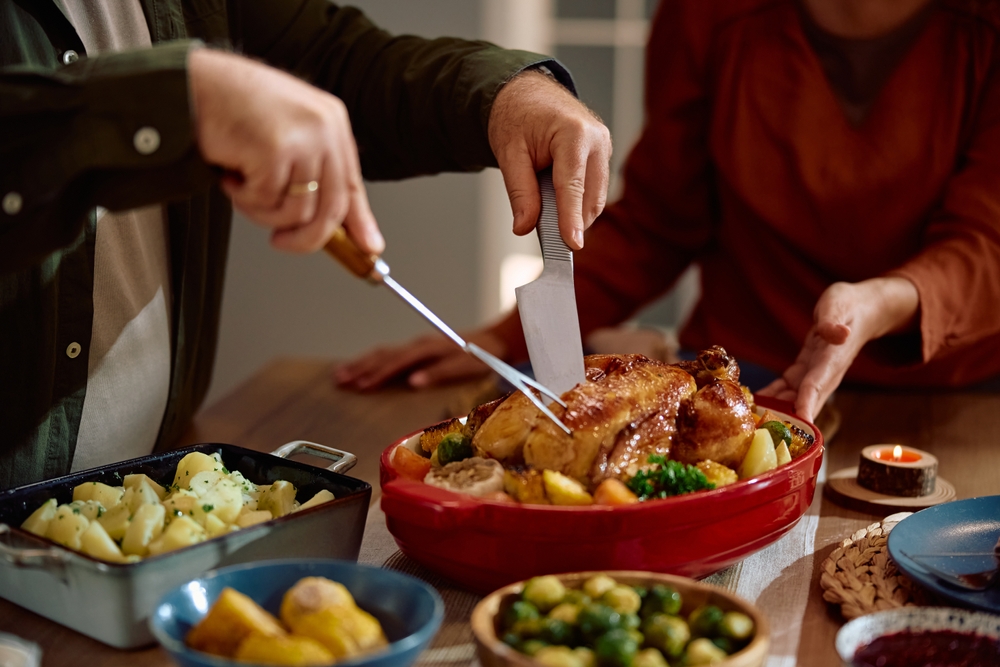
The holidays are a whirlwind — twinkling lights, cozy gatherings, sentimental traditions… and, of course, food. From buttery cookies to rich family recipes passed down for generations, the season practically invites us to indulge. And here’s the good news: enjoying those festive foods is completely normal. As several nutrition experts remind us, there’s nothing wrong with eating a little more than usual during the holidays. What matters most is how we relate to food — and mindfulness can make that relationship much kinder, calmer, and more satisfying.
Mindful eating isn’t about restriction or willpower. It’s about paying attention — to your hunger, your senses, your emotional needs, and your enjoyment. By tuning in, you can savor what you love without guilt and build habits that support your well-being long after the decorations are packed away.
Here are 13 friendly, expert-inspired tips to help you enjoy food more mindfully this holiday season.
1. Tune In to Hunger Before You Eat

Hunger doesn’t always announce itself with a loud stomach growl. Sometimes it shows up as irritability, fatigue, or trouble focusing. Before you grab a plate, pause and ask: When did I last eat? How hungry am I right now? This gentle check-in can guide you to eat for physical hunger instead of habit or anxiety.
2. Make Time to Sit and Eat
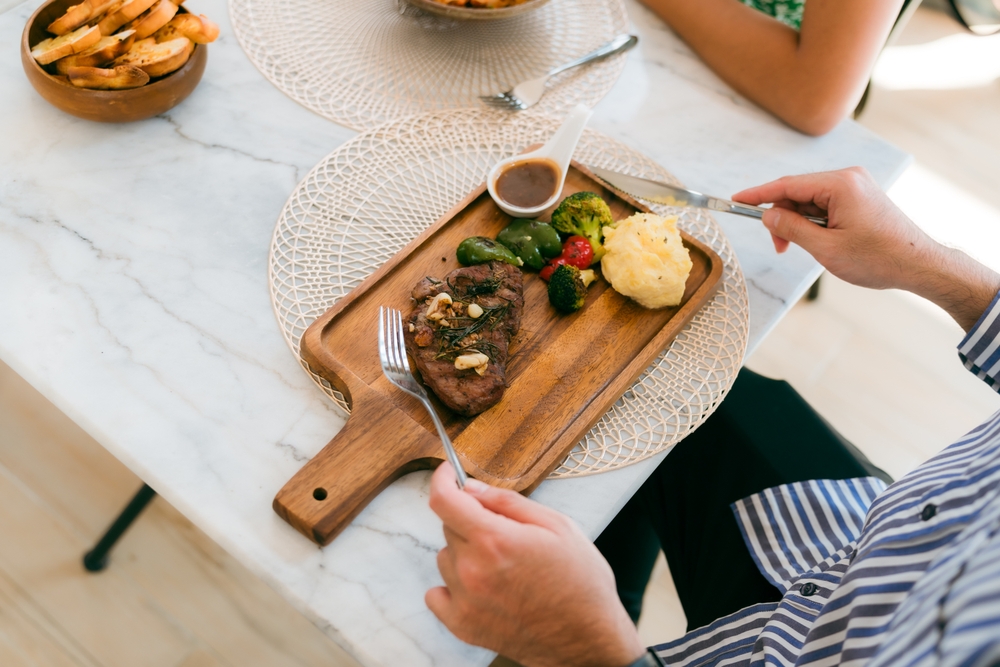
Holiday parties often encourage grazing — a bite here, a nibble there. Sitting down gives your body a moment to settle and your mind a chance to actually experience your meal. Even a quick snack feels more satisfying when enjoyed with your full attention.
3. Take One Deep Breath Before Eating
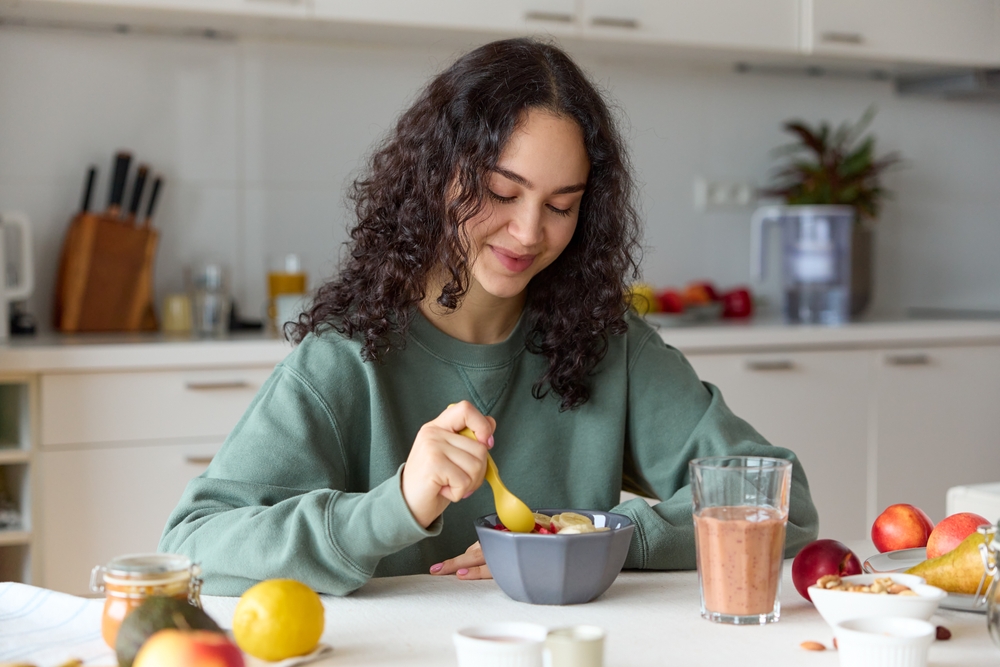
A single calming breath can shift your brain out of holiday autopilot. Deep breathing grounds you, helping you notice how you feel emotionally and physically before you start eating. It’s a tiny act with big impact.
4. Let Your Senses Guide You

This season is full of delicious sensory moments — warm spices, crisp pastries, creamy casseroles. Try pausing a few times during your meal to notice how your food tastes and feels. You don’t need to analyze every bite, but a few slow, intentional moments deepen satisfaction.
5. Keep a Gentle Eating Rhythm

Skipping meals to “save room” almost always backfires. Going too long without food can make you so ravenous that mindful eating becomes nearly impossible. Aiming to eat every three to four hours helps maintain steady energy and calmer decision-making.
6. Plan Your Leftovers First

If you tend to go overboard on once-a-year dishes, try this trick: mentally or physically pack a small to-go portion before you make your plate. Reminding yourself that you can enjoy these foods later reduces the pressure to overeat now.
7. Enjoy Holiday Foods All Year
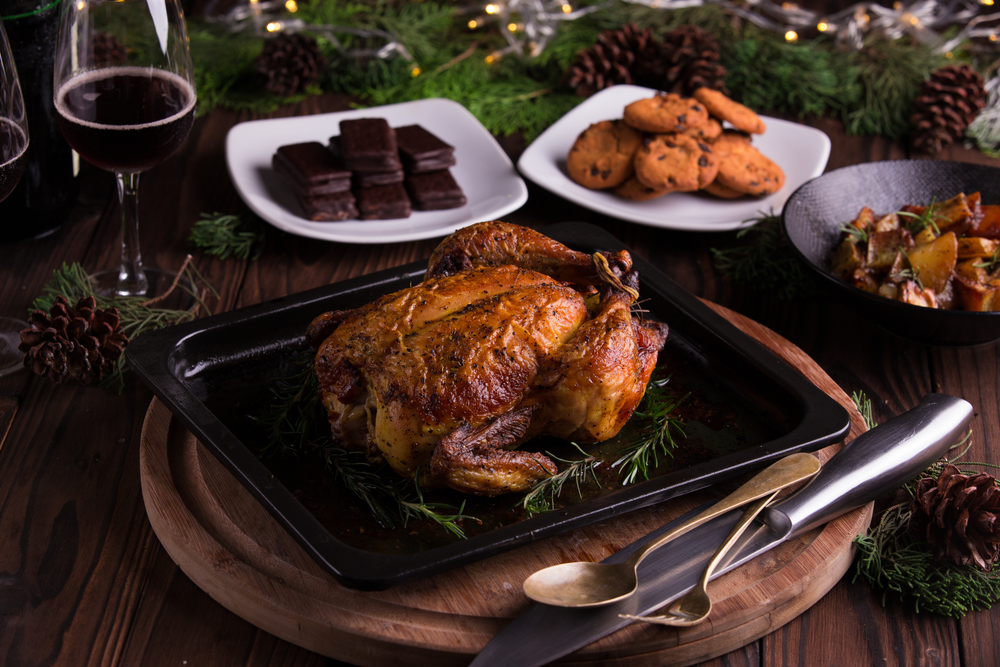
When certain foods feel “off-limits except during the holidays,” it’s natural to overindulge when they appear. Letting yourself enjoy your favorite treats anytime — even in April — makes them less emotionally charged and easier to eat mindfully.
8. Support Yourself Emotionally

Family dynamics, stress, and nostalgia can bring up a storm of feelings. Eating for comfort is human — but it doesn’t always soothe the way we hope. Having a few non-food coping tools (deep breathing, a short walk, stepping into a quiet room) can help you care for your emotions without relying solely on food.
9. Use Mindfulness Reminders

Setting tiny reminders on your phone a few times a day can help anchor you. When your alert pops up, check in: How do I feel? Do I need food, water, rest, or comfort? These moments make it easier to avoid mindless snacking driven by stress or boredom.
10. Slow Down Your Pace
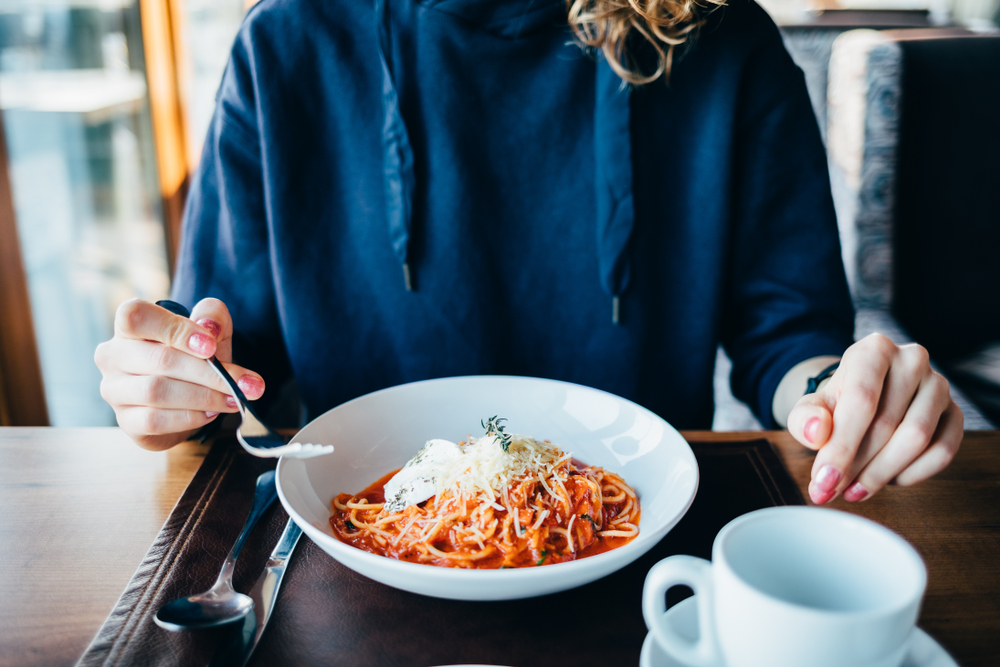
Your body needs time to register fullness. Try placing your fork down between bites or pausing mid-meal for a breath. Eating slowly helps you enjoy flavors more and stop before you’re overly stuffed.
11. Give Yourself Permission to Enjoy Food

Joy is part of well-being. Letting yourself savor your favorite dishes — without guilt — makes the experience more pleasurable and less likely to trigger overeating. Food is nourishment and culture and love. You’re allowed to experience all of that.
12. Build Balance, Not Perfection

When you can, include a mix of protein, fiber, fat, and carbs to keep your energy stable. But if a meal ends up being all stuffing and pie, that’s okay too. Balance happens over time, not in a single moment. Simply try again next time you eat.
13. Offer Yourself Grace
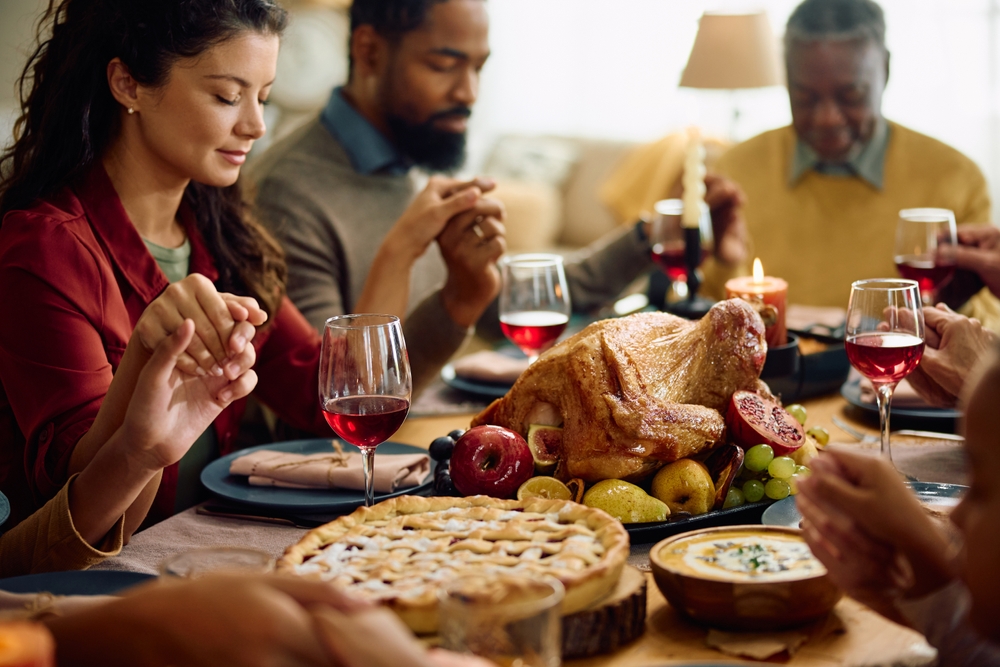
Mindfulness isn’t a pass-fail skill. Some meals will be mindful; others will be rushed or emotional or simply indulgent. That’s real life. The goal isn’t perfection — it’s awareness, compassion, and learning to trust your body a bit more every day.
Ultimately, mindful eating during the holidays is about presence, not pressure. By slowing down, checking in, and treating yourself kindly, you can enjoy the foods you love while staying connected to your body and your needs.




